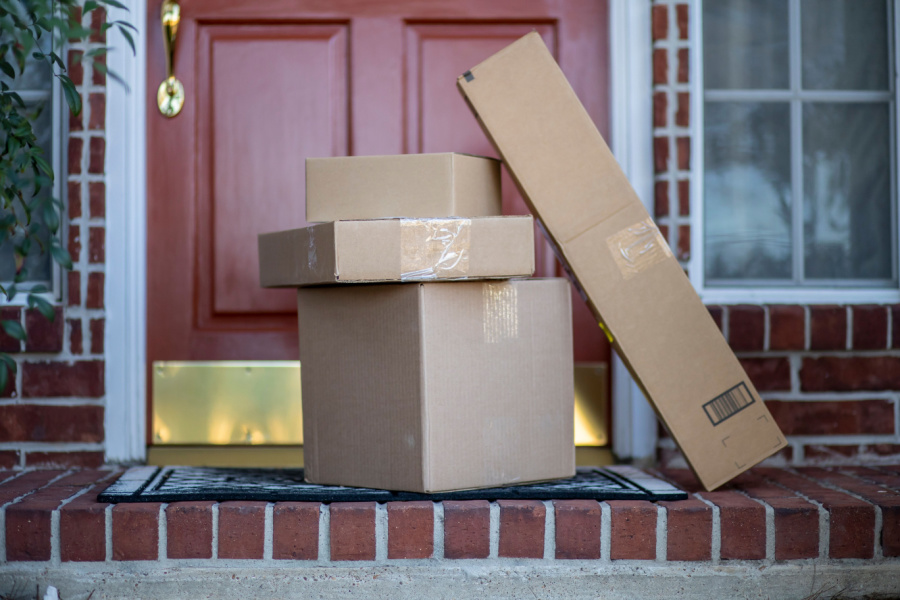If your e-commerce business is slow, you might blame it on everything from inflation to weather. But, sales might be suffering because of a lack of delivery options. Customer expectations for online shopping are high. If you can’t provide what they want when they want it, they will abandon their cart and go to a competitor that will.
Shipping can be the “make or break” piece of online purchasing. As Digital Commerce 360 reports, 50% of shoppers say their choice to click that “buy” button at checkout depends on the merchant providing delivery choices that meet their needs.
Purchases for special occasions, such as anniversaries or birthdays, might require express delivery. For other items, a shopper may accept waiting for economy shipping. Today’s high buyer expectations make logistics a priority. Consumers demand complete control of their retail experience throughout the transaction. In this article, we’ll look at the types of shipping available and why, when it comes to retail delivery, one size does not fit all.
Types of Shipping
According to the same Digital Commerce 360 report, 54% of online shoppers said that delivery drives purchasing decisions, and 60% said they purchase from one online merchant over another because they had preferable delivery options. Also, 35% said they would pay for faster delivery when needed.
Variety may be the spice of life, but it’s also a necessity when it comes to e-commerce shipping options. Make sure your options include:
- Order consolidation: This means sending out several items from the same order within a single shipment, or when multiple orders to the same address are consolidated into one shipment. This can significantly reduce your customer’s shipping costs for sending multiple packages.
- Flat-rate shipping: The size of the package being shipped dictates flat-rate shipping costs. It’s an effective way to incentivize purchases and offer the price transparency consumers demand. Flat-rate shipping can also lead to more orders and reduce your cart abandonment rate.
- Ship-from-store: For brick-and-mortar retailers with high inventory visibility and sufficient staff, ship-from-store can offer a real competitive edge. Online orders are shipped from the closest location, rather than a warehouse, providing lower shipping costs and faster delivery.
- Buy online, pick up same day or next day in-store: When customers buy online and then pick items up at their local stores, you’re adding another level of convenience. According to Pymnts.com, 37% more buyers chose pickup over delivery in 2022 than in 2021. This, of course, avoids shipping costs and speeds up fulfillment.
- Same-day delivery: In 2014, McKinsey talked about the importance of same-day delivery and rising customer expectations. Fast forward nine years, and 49% of shoppers say same-day delivery encourages them to shop online, and 96% say that speedy delivery means same-day service, per invespcro.com. Consumers say they will pay more for same-day delivery.
- Two-day and overnight shipping: Large retailers (hello, Amazon!) who offer fast shipping are raising the stakes for all online merchants. Two-day shipping has become mandatory; overnight delivery offers the ultimate customer convenience.
- Specific-day shipping: Some shoppers prefer delivery on a specific date. For others, the certainty of a guaranteed delivery date is more important than speed.
- Membership-based shipping: Think Amazon Prime. Of course, it’s not free. For retailers, membership can boost revenue because membership fees can cover shipping costs. The key is to target the right buyers for the program.
Why You Should Offer Multiple Shipping Options
Customers have different shipping preferences. Certain buyers want speed. Some will wait to save money. Still, others want a scheduled delivery day. In the quest for a competitive edge in an e-commerce fulfillment market that, according to Global Newswire will reach $58.7 trillion by 2028, delivery options can make or break your business.
While everything seemingly benefits the consumer, there are advantages you can exploit:
- Flexibility and convenience: Certain products require different shipping methods based on size, weight, fragility, etc. When you offer multiple options, you can accommodate specific product needs and ensure they arrive in perfect condition. Some items also may require special packaging or handling that can only be provided through a dedicated shipping method.
- Cost optimization: Shipping costs vary significantly based on destination, weight, dimension, and speed. Offing multiple shipping methods means optimizing shipping costs by choosing an order’s most cost-effective option. Giving yourself this type of flexibility can reduce overall shipping expenses, which improves profit margins.
- Geographic reach: If you maintain a global operation or have customers in different regions, you can benefit from multiple shipping methods. Carriers and shipping services have varying capabilities and coverage areas. Retailers can ensure they can reach customers in remote locations or international markets reliably and efficiently by diversifying shipping options.
- Contingency planning: Supply-chain disruptions continue. When you have multiple shipping options, it provides a backup plan if a specific carrier experiences delays or disruptions. Businesses can quickly switch to an alternative shipping method so orders are delivered on time, which provides the expected customer experience and helps maintain a positive brand image that keeps them coming back.
- Competitive advantage: Retailers who give customers what they want win. It’s a competitive marketplace; offering shipping options can gain you an edge. Shoppers value choice; it gives them control. Multiple shipping options can attract new customers, increase conversions, and boost customer loyalty.
Offering multiple shipping options for your e-commerce fulfillment shows you understand your customers and are willing to cater to their diverse needs. It also provides flexibility for shoppers and your business and sets up your retail stores for success. By not being tied to one shipping method, you can adapt to changing market conditions and supply chain disruptions.
